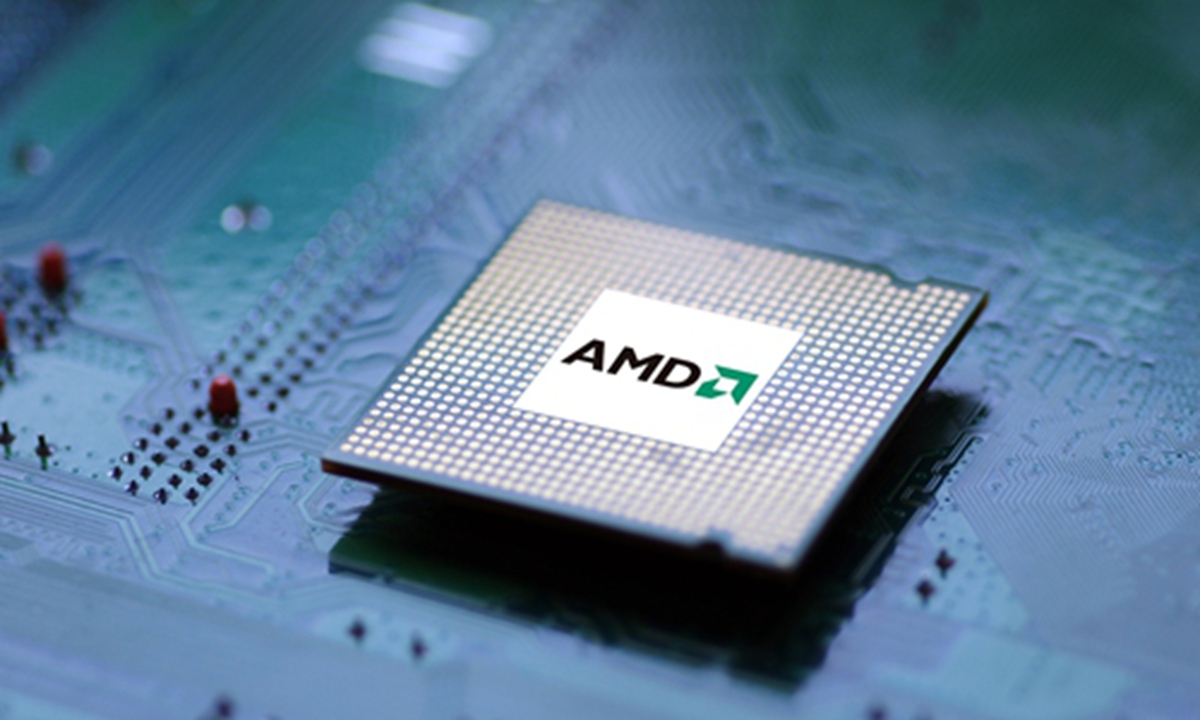US-exclusive chip merger mania rebuffs chances of non-American players
Source: Global Times Published: 2020/10/11 20:22:07

Photo: VCG
The news that Advanced Micro Devices Inc (AMD) is in talks to purchase rival chipmaker Xilinx Inc marks the latest development in the semiconductor industry consolidation, but it is unsettling and abnormal to see non-US companies being increasingly marginalized in the chip merger mania that may have profound impacts on global tech industries in the long term.
While The Wall Street Journal have stated that the AMD-Xilinx deal, which could be valued at as much as $30 billion, still faces negotiation uncertainty, the mere possibility of the deal still leaves the impression that concentration of the US semiconductor industry is improving rapidly with various players rushing to expand in size by absorbing others. This is because the AMD-Xilinx deal arrives on the heels of Nvidia's $40 billion acquisition of Arm, which is currently seeking regulatory approvals from several countries.
To a certain extent, Xilinx and Arm share a lot in common in terms of their cornerstone market positions in the industrial chain. Xilinx develops specialized chips called field programmable gate arrays, or FPGAs, that can be reprogrammed and are used in a wide range of applications, while Arm controls the world's most widely-used CPU instruction set architecture that is used in more than 90 percent of the world's smartphones. And it is their unique positions that add strategic significance to their acquisitions, especially at a time when the US is persistently pushing for a "tech decoupling" from China.
The stakes are particularly high if the two deals are realized, as it would mean that the rapidly consolidating US chip industry will see further concentration of technology resources, thus strengthening its position in technological research and development as a result of synergy effects. In the meantime, the US monopoly in the global semiconductor industry will be even more unshakable.
However, such developments, if realized, would be suffocating for the non-US players. Given what the Trump administration has been doing to preserve its high-tech supremacy, it seems impossible for companies of other countries to acquire any major player in US semiconductor industry. Although observers indicate that it could be challenging for those strategically sensitive chip mergers to receive green lights from Chinese authorities, chances of obtaining US approval for any non-US company's purchase of Arm or Xilinx may be even lower.
It is not uncommon to see the Committee on Foreign Investment in the United States overturn large-scale purchases of US or European tech companies by Chinese companies in recent years, which is sufficient to suggest a strong US determination to crack down on any potential competitors.
The US semiconductor industry is undergoing a wave of rapid consolidation, which should see the participation of global chipmakers. But now it seems that the industrial concentration opportunity will be exclusive to American companies, with companies elsewhere are not invited to the party. The US' implicit political deterrence under the guise of national security concerns has certainly helped to preserve its tech hegemony, but the approach is wrong and conflicts with basic market principles. The world needs to be alarmed by such an attempt at consolidating an industrial monopoly through unfair administrative power.
Posted in: GT VOICE